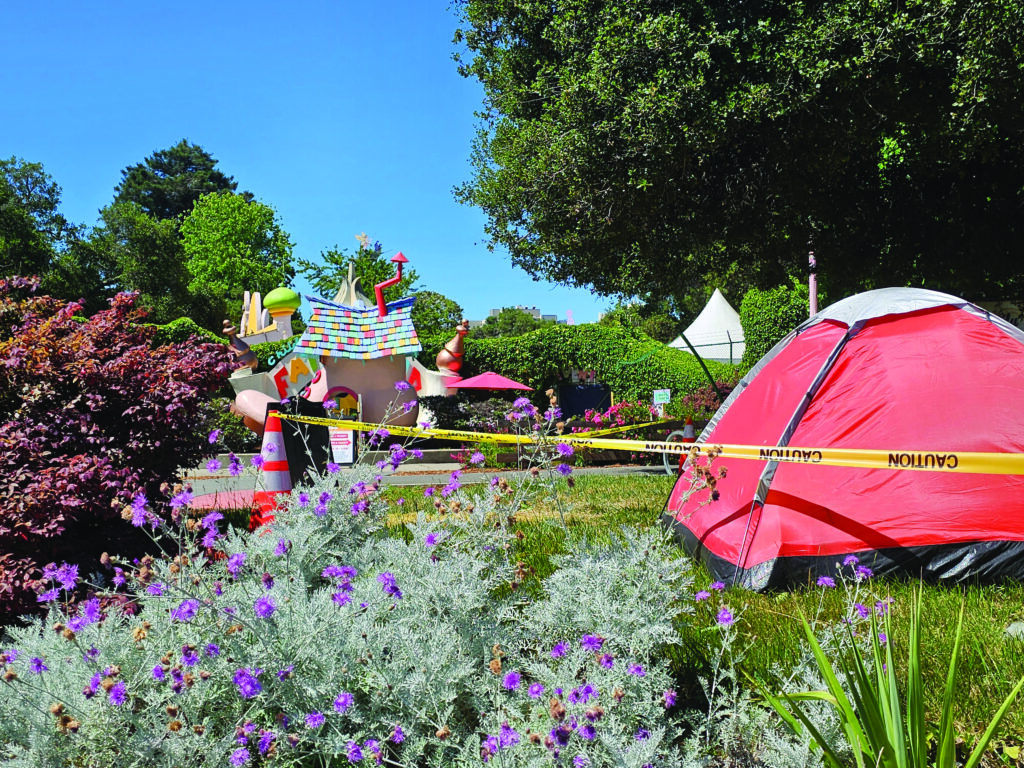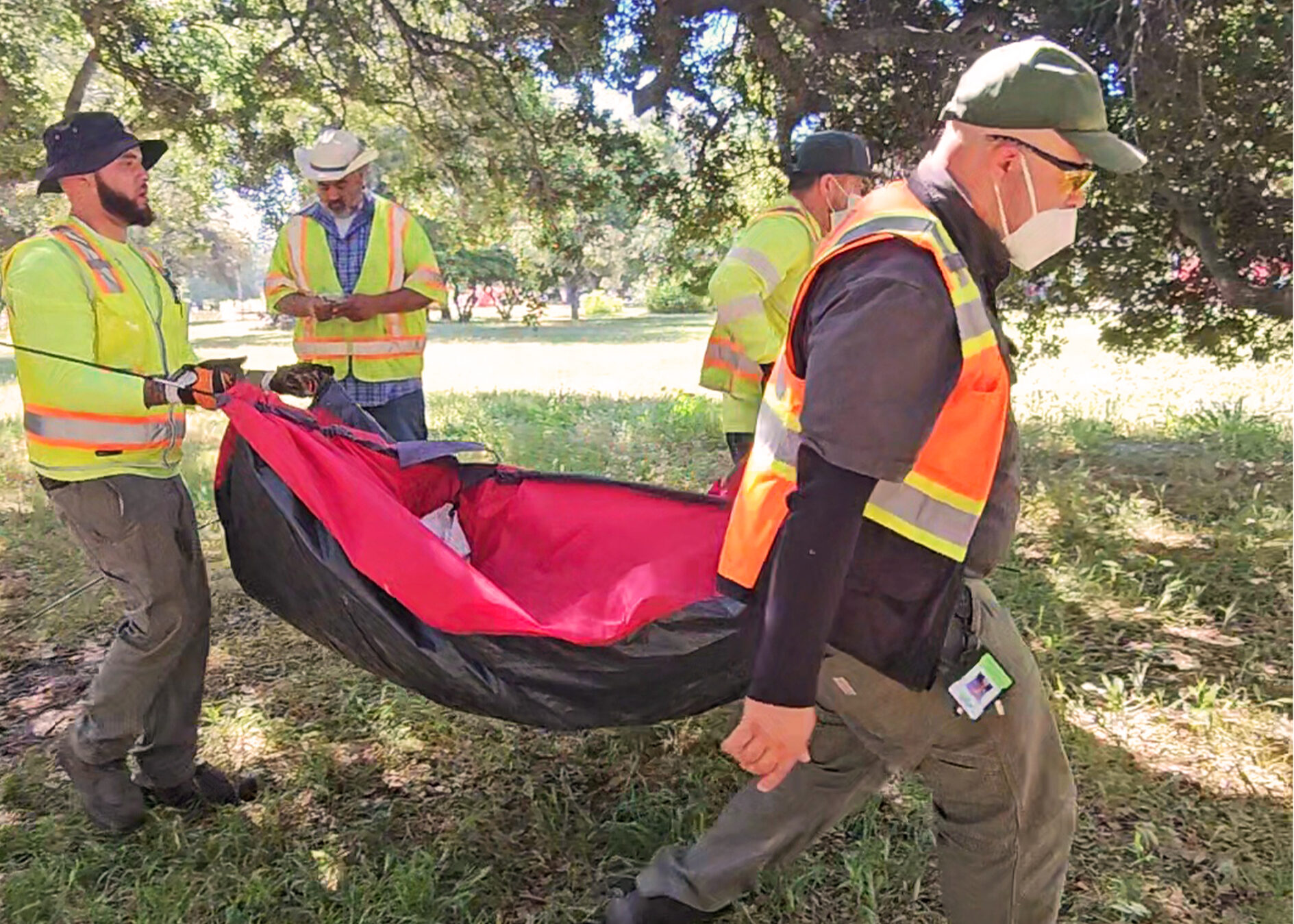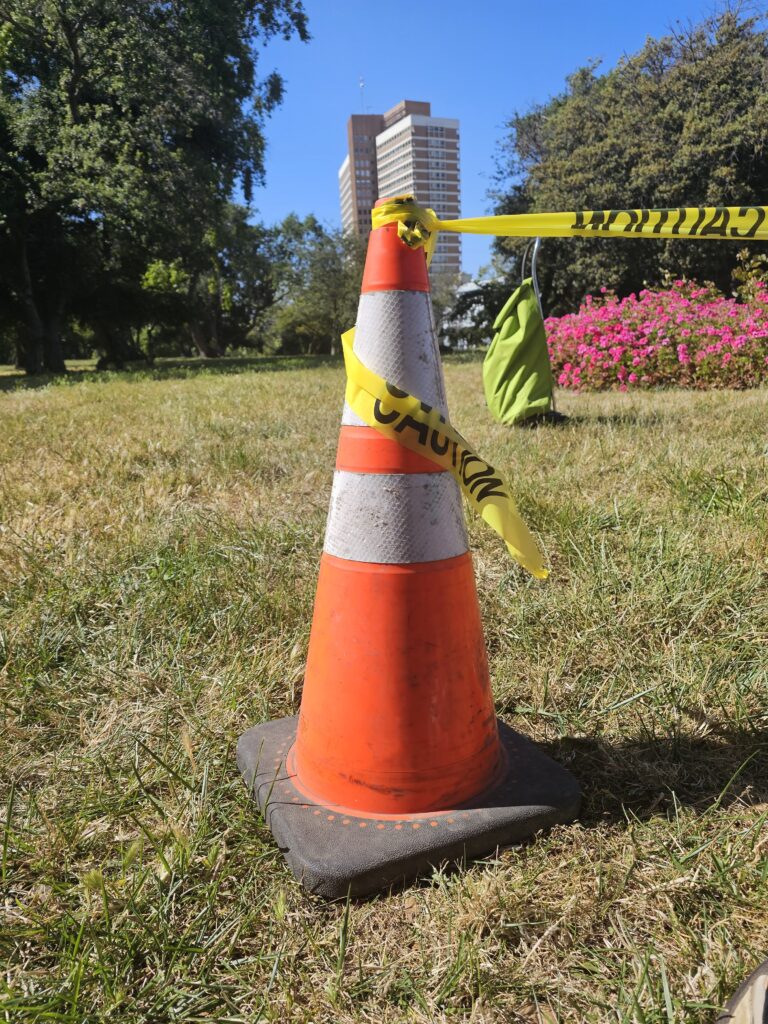
On June 28, 2024, the United States Supreme Court ruled that the Constitution allows local governments to fine, arrest, and jail people for living outside, even when there is no shelter available. In short, the ruling says that the simple act of sleeping outside can be a crime if local governments choose to make it one, and that there is no requirement for municipalities to offer shelter before criminalizing the act of sleeping outside. As cities around the country begin the process of re-examining their encampment policies, we wanted to capture the Bay Area’s early responses to the new ruling—plus, one response from a formerly unhoused resident of Grants Pass. Street Spirit surveyed city officials, outreach workers, homeless advocates, and current and former members of the unhoused community.
We asked everyone the same question:
“How will the Grants Pass ruling impact your life, your work, or both?”
These 11 responses offer a snapshot of the ruling’s early impacts.
Chelsea O’Neal, HIV Research, San Francisco Department of Public Health, Population Health Division
“I work with many people who are experiencing homelessness in the Bay Area. Even in a city with as many resources as San Francisco, there are thousands of people who live outdoors. This ruling is effectively criminalizing homelessness when so many people are left with no other option than to sleep outdoors. It is a vile and violent act of aggression against those in this country who are already in the most precarious situation. Punishing people for being homeless due to circumstances beyond their control should not only be considered cruel and unusual punishment, it should be considered genocidal. These ruling bodies systematically force people to the brink, and then accuse those same people of doing it to themselves.”
Helen Cruz, Self-employed house cleaner, 40-year resident of Grants Pass, formerly unhoused
“The impact that this ruling has had on my life is both positive and negative. I have learned a lot from the local and national organizing that has taken place since the lawsuit in my city made its way to the Supreme Court. I hope to make a difference in my community with that knowledge. The downside to it is now they want to set up fences and treat us like a pack of wild animals at the zoo. Still no answer to the housing stability that we need to actually be able to have a home. Not to mention the threats I’ve been getting makes me a little uncomfortable, but it will not stop me from being heard.”
Peter Radu, Deputy City Manager, Berkeley
“The City of Berkeley is committed to upholding federal best practices for addressing homelessness and resolving encampments. We recognize that we cannot arrest our way out of a regional housing affordability crisis. We are carefully reviewing the implications of the US Supreme Court’s recent decision on our ongoing initiatives and [are] unable at this time to provide additional comment.”
Members of West Oakland Punks with Lunch
“The Grants Pass ruling is disappointing but not surprising, and reinforces the importance of building systems of community care outside of the state. We remain aware that SCOTUS and related systems were built to entrench the interests of the rich against those of the general population.
This ruling further intensifies the criminalization of homelessness and poverty already occurring in the East Bay. The insatiable appetite of capitalism will not stop at those currently poor; the confluence of climate catastrophe, nuclear war, and mass extinction puts us all at risk.
We must continue to fight to counter the harm inflicted by those systems and always strive to work directly with community members to address their needs. This ruling only strengthens our resolve to do so.”
Talya Husbands-Hankin, Founder of Love and Justice in the Streets in Oakland

“Love and Justice in the Streets, is a grassroots organization dedicated to supporting human rights organizing as well as meeting material needs of unhoused people in the East Bay.
The Supreme Court’s decision in Grants Pass is already impacting my life and my work. The Court’s decision has emboldened the City of Oakland to use increasingly violent and devastating tactics during encampment evictions. The week of July 15, the Wood Street community faced yet another harmful expression of state violence in which multiple people lost their shelters and their belongings to a City of Oakland sweep. Advocates and community members were banned from entering the ‘safe work zone’ area under threat of arrest. The city is using the threat of arrest as a weapon to crush community care, isolating unhoused people during sweeps so there is no way for people like myself to offer support and connections to critical resources. Media has also been barred from entering ‘safe work zones.’
I am extremely concerned about how the Cities of Oakland and Berkeley will continue to escalate harm towards Unhoused residents through violent and wasteful sweeps.
No matter what city governments do, I am confident that Unhoused leaders and their allies will continue to organize and advocate for real solutions including permanent accessible housing. We will not stop organizing.”
Cecilia Lunaparra, Berkeley City Councilmember, District 7
“When the Grants Pass decision was issued, I immediately began hearing from unhoused constituents that they were afraid that their rights had been taken away by our far-right Supreme Court. I, along with Councilmember Taplin, introduced a resolution meant to assuage our unhoused neighbors’ fears by declaring that, although the decision is a travesty, no one in the city of Berkeley had any fewer rights the day after the decision than they did the day before. I am grateful that the city attorney agreed with this analysis and that Councilmembers Taplin, Bartlett, and Tregub voted yes on the resolution. However, I am deeply disappointed that it did not pass and a majority of the City Council refused to push back on SCOTUS’ draconian ruling.
Regardless, what the resolution says is true: while the Grants Pass ruling gives the City of Berkeley the ability to further criminalize homelessness by passing new laws, it does not, on its own, change anything about the city’s current policies. Now, it is my job as a councilmember and our job as a community to loudly push back on any attempts to use Grants Pass to enact new policies that further criminalize homelessness.
Even before Grants Pass, our elected officials needed to do more to support unhoused members of our community. Now, let’s redouble our efforts to provide housing and services to people in a respectful and noncoercive manner, prevent them from being harassed and discriminated against, and foster a culture of community resiliency, mutual aid, and solidarity.
Being unhoused is not a crime. Sleep is a biological necessity. That is still the law in Berkeley. Let us keep organizing to protect our city’s existing protections for unhoused people and to expand them so that everyone in our community can thrive.”
Brigitte Nicoletti, Staff Attorney at the East Bay Community Law Center, Berkeley
“As an attorney in the Homelessness Unit at East Bay Community Law Center, the Supreme Court’s decision in Grants Pass is already having a devastating and immediate impact on my clients. All the cities in the East Bay already have laws on the books that criminalize unhoused people for existing — for performing necessary life functions that housed people have the privilege of doing in the privacy of their homes every day. Now, cities will be able to enforce these existing ordinances by arresting individuals regardless of shelter availability. Not even a month after the decision, we’re already seeing the City of Oakland escalating its tactics, using the threat of arrest to block advocates from assisting unhoused residents during an eviction at Wood Street that resulted in the towing and destruction of multiple individuals’ homes and belongings. But while the Court has taken away a critical advocacy avenue, we are committed to fighting for our client’s humanity despite the worsening legal landscape — we will keep showing up to evictions, fighting for our clients’ rights in court, and being led in our advocacy by our unhoused clients because they know their needs best.”
Anita De Asis Miralle aka Needa Bee, Executive Director of The Village in Oakland, Steering Committee member of Homeless Advocacy Working Group, Unhoused from February 2017 to January 2024

“I believe the Grants Pass ruling will cause increased trauma not only to the curbside communities we work with, but to our staff and volunteers and the broader Oakland community as well. Evictions of Oakland’s shanty towns, slums, vehicle dwellers are unnecessarily brutal and absolutely disgraceful, and [advocates] are already spread thin with the ongoing evictions.
We anticipate that there will be not only an increase in evictions, but a rise in the intensity and brutality of Oakland’s inhumane eviction practices. The multiplied trauma, the deepening of setbacks, and the pushing our people further into the margins of society and survival is not something curbside communities, advocates, or the broader housed residents of Oakland are prepared to bear. Criminalization of unhoused residents will not solve homelessness. It will merely make homelessness invisible and will come with a plethora of issues we as a city are not prepared for, financially, emotionally, or mentally. We are not prepared for the oppression that this ruling could create.
This ruling now allows local governments to enforce fines, arrests, and detainment, as well as steal residents’ property if THEY CHOOSE to do so. The hope is that the city chooses to finally follow their own policies. But we know that the City of Oakland will choose the path that is the least humane. Oakland rarely followed Martin vs Bosie, and only followed it when advocates and legal observers were present. We are sure they will continue down this path of inhumanity now that it is deemed constitutional to punish people for surviving when there is nowhere else for them to go.”
Jonathan Russell, Director of Alameda County Health, Housing and Homelessness Services
“We are committed to supporting the health and well-being of unhoused people in our community—the Supreme Court’s Grants Pass ruling doesn’t change that approach. We will continue to pursue evidence-based best practices rooted in dignity and equity, including the creation of housing and supportive services for those experiencing homelessness. We know that coordinated approaches with our city partners lead to positive results, and we hope to continue those productive relationships in moving toward meeting the goals laid out in the County’s Home Together Community Plan.
This is a challenging issue, and this ruling adds another layer of complexity that is not without risk of causing additional harm. But if we work together, we can continue to achieve successful outcomes.”
Andrea Henson, Civil Attorney and Executive Director of Where Do We Go
“The ruling has affected my personal life because I have had to spend a great deal of personal time explaining how the ruling impacts the homeless laws in various jurisdictions to non-attorneys, mutual aid groups, organizations, and activists so that we can build coalitions of support. I spend time organizing and collaborating with social justice organizations and reading news articles to understand how eviction tactics are evolving across the Ninth Circuit (Western States most impacted by the ruling). As a civil rights attorney, I have to focus on more precise, nontraditional, and innovative arguments. The arrogance in which city leaders, resource providers, and others demonstrate now because of the SCOTUS Martin v. Boise/Johnson v. Grants Pass ruling is very noticeable. Fortunately, the ruling and the current political climate has sparked the embers of a new movement and motivation to fight back.”
Anonymous unhoused Community Organizer in Oakland

“[The Grants Pass ruling] has already impacted my life in that myself and my friends have been cited multiple times, just for trying to provide mutual aid to our unhoused friends and community members. I’ve already seen the amount of cops that are present at sweeps increase. Sweeps have always utilized military tactics, but I’ve definitely noticed an increase in the military tactics at sweeps since the Grants Pass hearing.
At the Wood Street sweep, that just happened. They’re fencing off entire streets. They’re preventing people who are coming in to support encampment residents from entering the area to provide that support. I’m seeing a lot more cops being emboldened. At Wood Street, cop cars were driving around using their loudspeakers, saying ‘you are being asked to leave, and if you refuse, you will be subject to arrest.’ Really just driving around and playing that on repeat. And meanwhile, there are 20 cops standing around, sitting in their cars, not doing anything. We’re having to get permission every time we want to help get somebody a tow, or move their tiny home, etc. All these different things that needed to get done [to help people move out of the encampments they are being displaced from] are now getting clogged up because cops are not communicating with each other effectively.
It’s like they just want to cut off people from their support systems and force them into a corner where they don’t have any options. It’s just more of the same, but worse.
Sweeps are a war of attrition. But it’s becoming even more of just a straight up battlefield since Grants Pass.”
Laura A. Zink is a writer from Oakland, California. She is a former Steinbeck Fellow, an English teacher, and an organizer of the Oakland literary festival, Beast Crawl. For the summer, she will be the Editor-in-Chief at Street Spirit.
